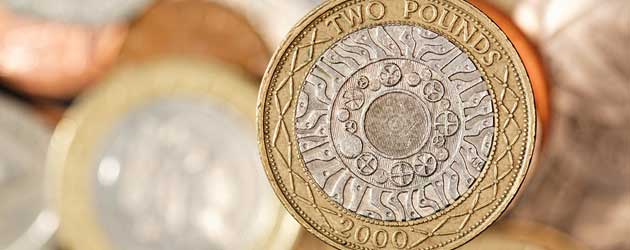
The Pound surged higher against nearly all of its major currency peers yesterday, as bets that the Bank of England will hike interest rates increased rapidly – despite the fact that the Bank of England Minutes report showed “no immediate need” to raise the benchmark rate.
It was a case of actions speaking louder than words, as British Unemployment fell steeply from 7.4% to 7.1% in the three months to November. This was the sharpest quarterly drop in joblessness since 1997, and the 280,000 new jobs that were created mean that Unemployment is currently running at its most optimistic level for four-and-a-half years. More importantly, for Sterling traders, Unemployment is currently just 0.1% above the Bank’s 7.0% threshold for considering raising interest rates.
The massively better-than-expected UK labour market data sent the Pound higher across the board.
The Pound to Euro exchange rate (GBP/EUR) reached a fresh yearly high of 1.2242.
The Pound to US Dollar exchange rate (GBP/USD) rose by around one cent to 1.6580.
The Pound to New Zealand Dollar exchange rate (GBP/NZD) jumped higher by around two cents to 1.9970.
Sterling also performed well against the Canadian Dollar and the Australian Dollar, but there were other factors affecting both GBP/AUD and GBP/CAD.
The Australian Dollar was the best performer against the Pound yesterday, avoiding defeat for the majority of the day’s session. This is because overshooting domestic inflation data had given the ‘Aussie’ a considerable boost earlier in the day.
The Canadian Dollar, on the other hand, lost out on around three cents as Bank of Canada Governor Stephen Poloz said that inflation is likely to remain below 1.0% for the remainder of the year. Poloz made a series of remarks regarding Canada’s soft inflationary outlook, and the ‘Loonie’ depreciated across the board as investors increased their bets for a BoC rate cut.
However, there is one problem with the Pound’s robust performance yesterday and that is the Bank of England’s apparent reluctance to raise rates in 2014.
The BoE Minutes indicated that the Bank is willing to maintain the 0.50% benchmark interest rate even when Unemployment hits the 7.0% threshold. One, because it is just that: a threshold not a trigger for hiking rates. And two, because inflation has recently fallen inline with the Bank’s 2.0% target, therefore removing a lot of pressure on policymakers to raise rates.
Market movement yesterday, and for the past few months for that matter, suggests that traders do not believe that the BoE will be able to refrain from hiking rates when labour market conditions improve.
As long as this mindset continues, the Pound is liable to maintain an uptrend against its most-traded currency rivals.
However, Sterling could be in for a nasty shock if the BoE opts to pushback its Unemployment threshold next month. There are dark mutterings among experts that the Bank will use February’s Quarterly Inflation report to modify its forward guidance policy. But then again there are dark mutterings from experts that the Hadron Collider is sabotaging itself from the future to prevent the development of things that shouldn’t exist.
So unless there is a seismic shift in market sentiment, it is likely that the Pound will continue to appreciate despite the Bank of England’s protestations.

Comments are closed.